Best Herbal Tea Recipe for Anxiety and Stress Relief
Are you feeling stressed or overwhelmed lately? I want to share with you the best herbal tea for anxiety that can help you reduce stress levels and promote relaxation. This tea blend not only tastes great, but also offers a variety of health benefits for your overall well-being.
As someone who has generalized anxiety disorder, I completely understand how challenging it can be to manage our anxiety levels. However, there are some natural remedies that can help us find some peace and calmness amidst our hectic lives. So, if you’re looking for a great way to unwind and ease your stress levels, keep reading to discover what I hope is the perfect calming tea for you!
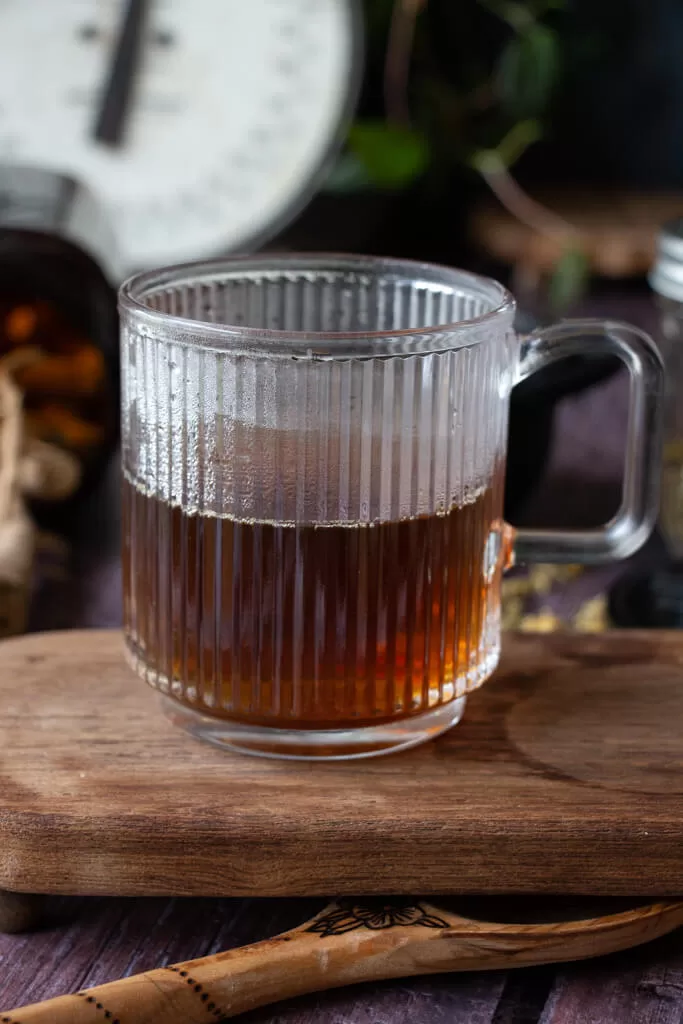
Where does Anxiety come from?
Anxiety can come from a number of root causes, so it is always important to determine the cause for you and try to fix the problem on a deeper level.
Anxiety can be caused by genetics (thanks, mom!), environmental factors such as a traumatic or stressful event, health conditions, lifestyle, work pressure, relationships and more. Definitely talk to a professional about your mental health for help! Seeking therapy for my anxiety was one of the best things I ever did!
Medical disclaimer: I am not a medical professional and I am not claiming that these herbs are a substitute for professional care. Always consult a professional for medical advice when starting natural remedies at home. These are just things that I use and love in my own home.
Please Note: This tea contains ashwagandha, which is not right for everyone.it is a powerful herb, but must be used with caution. For example, taking ashwagandha alongside a prescribed medicine can potentially double the effects (no bueno). Talk to a doc before drinking this tea.
Herbal Tea Recipe for Anxiety and Stress Relief
My favorite place to buy herbs online is Starwest Botanicals. Each of the links below is an affiliate link, where I make a small commission from your purchase, at no additional cost to you.
Ingredients:

Don’t have all these herbs? No problem! You could have something as simple as peppermint tea or chamomile tea to help.
Optional additions: lavender, passion flower
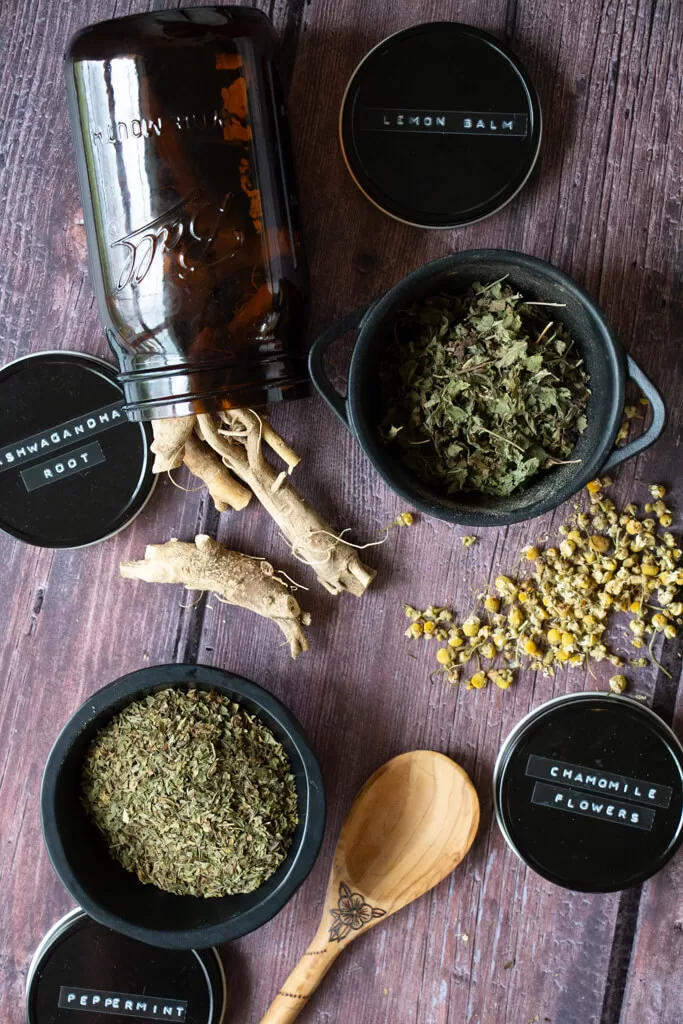
As an Amazon Associate, I earn from qualifying purchases. Please visit my privacy + disclosure page for more details.
Supplies for Infusion:
How to Brew Herbal Tea
For detailed instructions on the methods for brewing herbal tea, check out my post: How to Brew Herbal Tea: Infusions and Decoctions. Because ashwagandha is a root, it is best extracted using a hot decoction method. While this is true, I also just like to brew it like normal by steeping in hot water for 7 minutes. Try each method and let me know your favorite way to brew in the comments.
Decoction Instructions:
- Mix all of your herbs in a bowl and transfer to an airtight jar.
- Boil 1.5 cups filtered water.
- Add 2 TBSP of the tea mixture.
- Reduce heat, cover, and gently simmer for 15-20 minutes.
- After simmering, remove the pot from heat and strain the tea through a fine mesh strainer or cheesecloth.
- Serve the tea hot and enjoy!
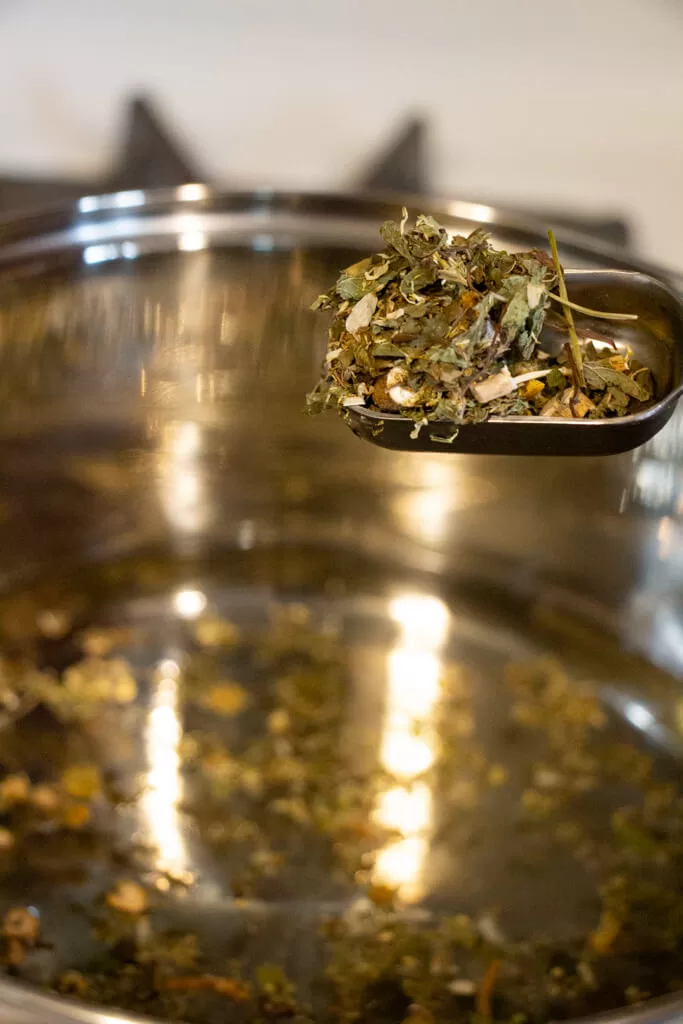

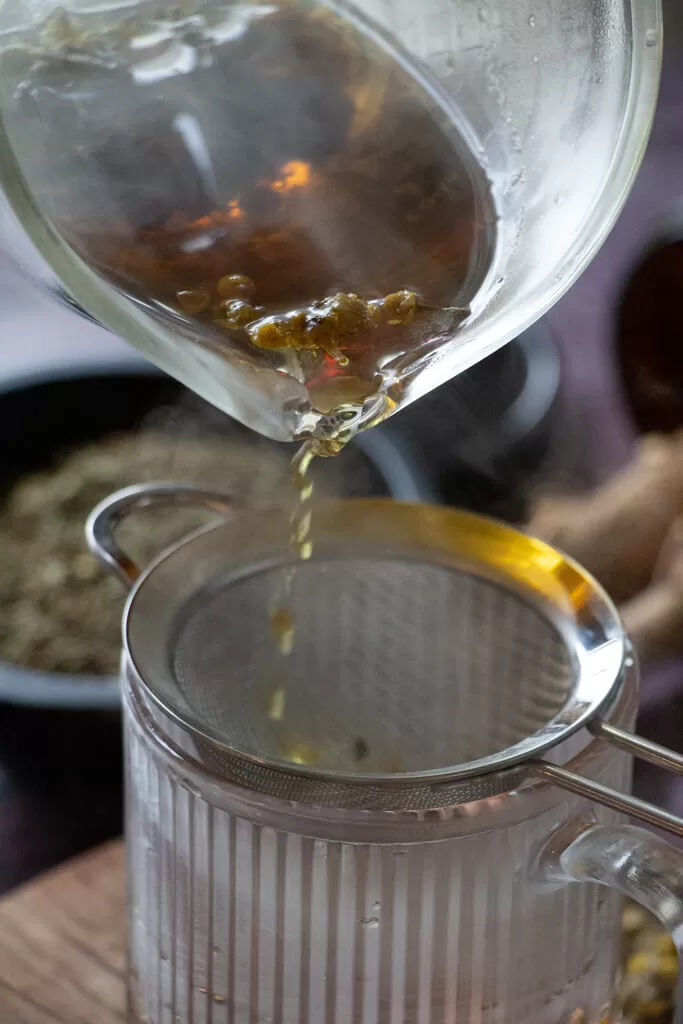
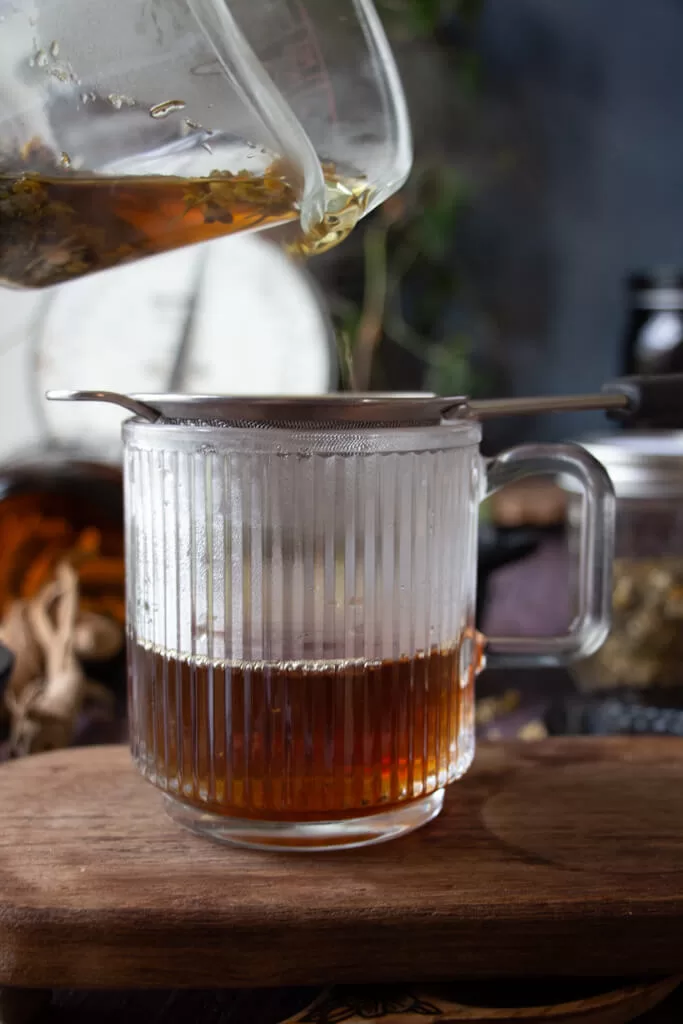
Infusion Instructions:
- In a mixing bowl, combine all the dried herbs and stir to mix well. Store this loose-leaf tea in your half-pint jar.
- Measure out 2 tablespoons of the herbal tea blend and place it in a tea strainer or infuser.
- Bring 1.5 cups of water to a boil. Always use hot water that has been brought to a boil and then allowed to cool slightly. This ensures that the tea is brewed properly and that the flavors and properties of the herbs are extracted. Water that is too hot can damage the delicate compounds in the herbs, and water that is too cool may not extract all of the beneficial properties.
- Place the tea strainer or infuser in a mug and pour the hot water over it.
- Allow the tea to steep for 5-7 minutes. Always cover your mug when steeping to maintain all the herbal benefits.
- Remove the tea strainer or infuser from the mug and discard or compost the used herbs.
- You can add honey or lemon juice if you like.
- Enjoy your anxiety tea hot or on ice.
Herbal Tea for Anxiety Dosage
It is recommended to consume no more than 3 cups of this herbal tea per day. Overconsumption of certain herbs can cause side effects, and it is important to follow the recommended dosage and consult with a healthcare provider if you have any concerns.
I will say, I only drink or take ashwagandha before lunch. If I drink it too close to bed, it gives me really weird dreams!
Caffeine content – This herbal tea blend does not contain any caffeine, which makes it a great option for individuals who are sensitive to caffeine or who are looking for a caffeine-free alternative to traditional teas.

Storage
The tea blend can be stored in an airtight container in a cool, dry place for up to six months to maintain maximum freshness. It is important to store the tea away from direct sunlight, as exposure to light can cause the herbs to lose their potency.
Herbal Tea for Anxiety Benefits
Chamomile
Chamomile is a popular calming herb with relaxing properties. It contains compounds that may help reduce anxiety symptoms and promote restful sleep.
Lemon Balm
Lemon balm is a herb with a lemony scent that has been traditionally used to alleviate anxiety and stress. It may help reduce restlessness, promote relaxation by calming the nervous system, and improve sleep quality with its natural sedative properties.
Peppermint
Peppermint may help alleviate anxiety symptoms by relaxing the muscles and removing tension. In addition, it is a mood enhancer, provides digestive system support for an anxious tummy, and may even help with shortness of breath or chest tightness due to an anxiety attack.
Ashwagandha root
Ashwagandha is an adaptogenic herb that is believed to help the body adapt to stress and promote a sense of calmness. It may help reduce anxiety symptoms, improve mood, and promote restful sleep. Ashwagandha is one of my favorite herbal remedies because I believe it truly helped me. In “Randomized Double-Blind, Placebo-Controlled Study of Safety and Efficacy of a High-Concentration Full-Spectrum Extract of Ashwagandha Root”, researchers found that this herb significantly reduced serum cortisol levels in those who took the herb versus the placebo group. Another study found similar results. This herbal remedy is powerful!

Overall, these herbs may help alleviate anxiety symptoms by promoting relaxation, reducing restlessness, and improving sleep quality
While herbs are a gentle way to ease your symptoms and heal the body, they may still have side effects. Herbal medicine is MEDICINE and should always be treated as such.
Other Natural Remedies for Anxiety Relief
I know you may not want to hear it right now ( I never do). But. there are many natural ways to reduce the symptoms of anxiety. I know, I know. I literally panic more if someone tells me to “chill.” But these things truly do help. Here are a tried and true ways to calm anxiety:
- Exercise: Regular exercise can help reduce anxiety by releasing endorphins, improving sleep, and reducing muscle tension.
- Mindfulness practices: Techniques such as meditation, deep breathing, and yoga can help calm the mind and reduce anxiety.
- A healthy diet: Eating a balanced diet that includes whole foods, fruits and vegetables, and lean protein sources can help improve overall mood and reduce anxiety.
- Adequate sleep: Getting a good night’s sleep is crucial for overall health, and can help reduce anxiety symptoms.
- Limiting caffeine and alcohol: Caffeine and alcohol can worsen anxiety symptoms, so it’s best to limit or avoid these substances.
- Social support: Having a supportive network of friends and family can help reduce stress and anxiety.
Next time you feel the onset of stress, pair one of these lifestyle moves along with the benefits of tea to ease the impact.
Try this Herbal Tea for Anxiety
This herbal tea blend can be a great natural remedy to help soothe feelings of anxiety and promote relaxation. The combination of chamomile, lemon balm, mint, and ashwagandha root can have a calming effect on the mind and body, making it a perfect choice for a calming cup of tea. However, it’s important to use this tea in moderation and to consult with a healthcare provider if you have any pre-existing health conditions or are taking medication.
While a cup of tea may not be a cure for anxiety, it can be a helpful tool to support your overall well-being. By taking a moment to sit down and enjoy a calming hot cup of tea, you can give yourself a much-needed break from the stresses of everyday life and help promote a sense of calm and relaxation. So why not try this herbal tea blend today and see if it can help ease your feelings of anxiety?
Healing Herbal Teas with The Homestead Challenge
Tea Drinkers! This post is part of a series about the best herbal teas for common ailments. Check out the herbal blends below!
- How to Brew Herbal Tea: Infusions and Decoctions
- Cold and Flu Tea
- Allergy Tea
- Marshmallow Root Tea
- Nausea Tea
- Energy Tea
- Headache Tea
- Hangover Tea
- Mugwort Tea
Pin Herbal Tea for Anxiety Recipe for Later!

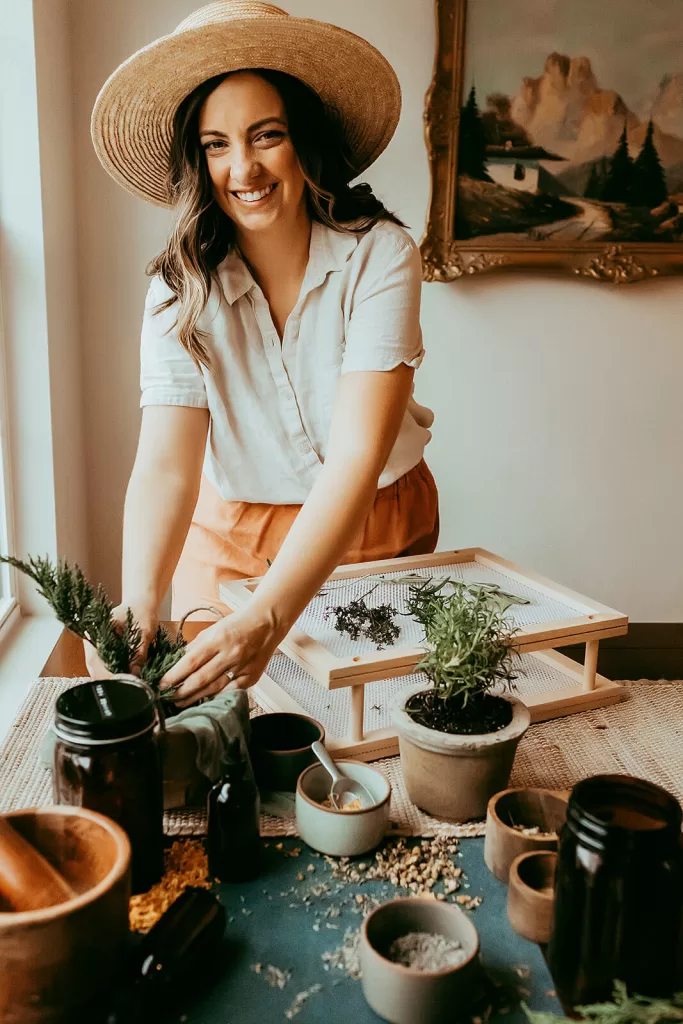
About the Author:
I’m Brittany, totally modern and mainstream turned crunchy mama!
Read more here about how I went from a totally incompetent cook and hyper-consumer to striving to live a more meaningful life from scratch.
I can’t wait to share my modern homesteading journey with you and I hope I inspire you to join along!
Sources:
- Chandrasekhar, K., Kapoor, J., & Anishetty, S. (2012). A prospective, randomized double-blind, placebo-controlled study of safety and efficacy of a high-concentration full-spectrum extract of ashwagandha root in reducing stress and anxiety in adults. Indian Journal of Psychological Medicine, 34(3), 255-262. doi: 10.4103/0253-7176.106022
- Pratte, M. A., Nanavati, K. B., Young, V., & Morley, C. P. (2014). An Alternative Treatment for Anxiety: A Systematic Review of Human Trial Results Reported for the Ayurvedic Herb Ashwagandha (Withania somnifera). Journal of Alternative and Complementary Medicine, 20(12), 901-908. doi: 10.1089/acm.2014.0177

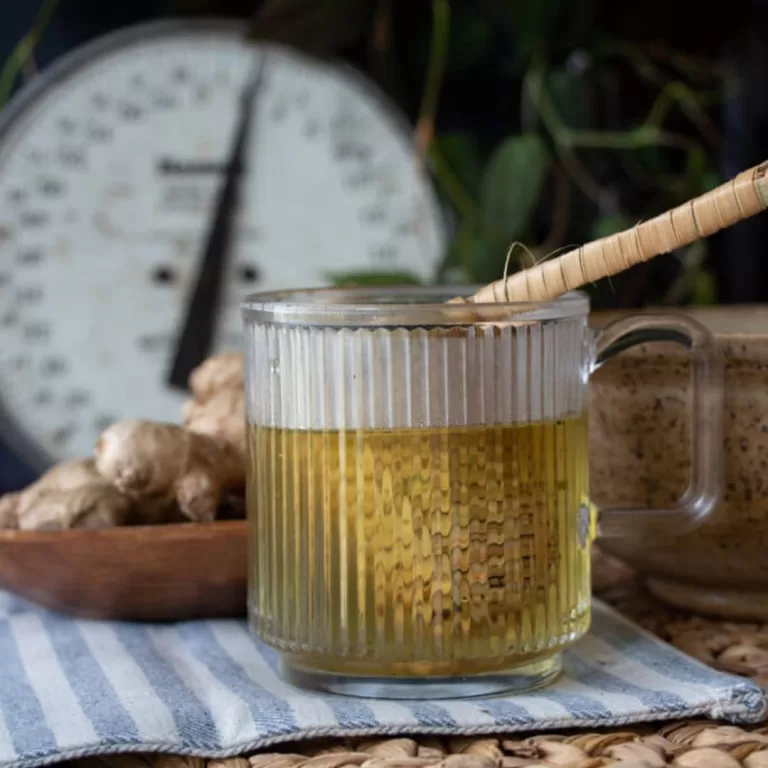
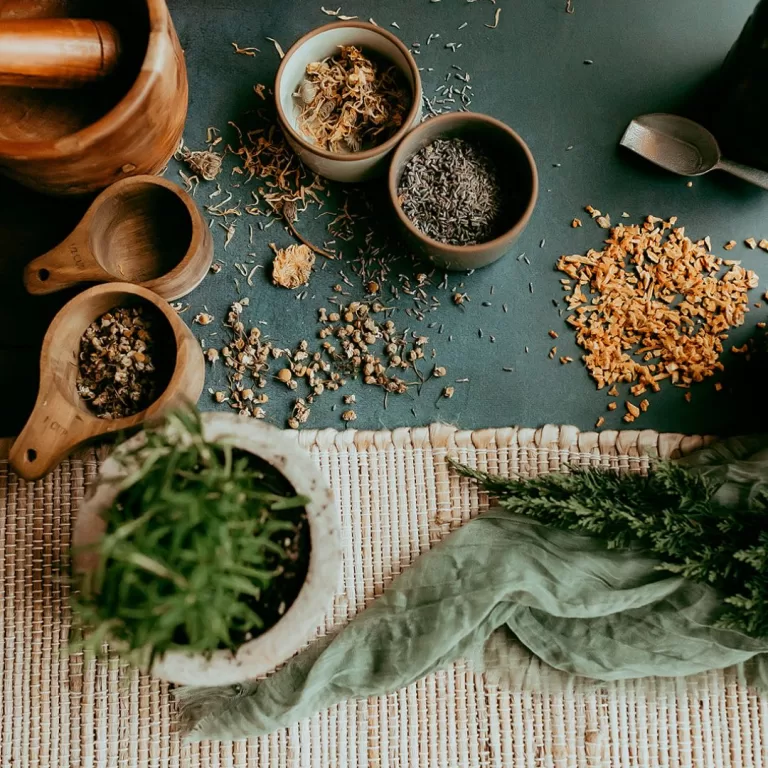
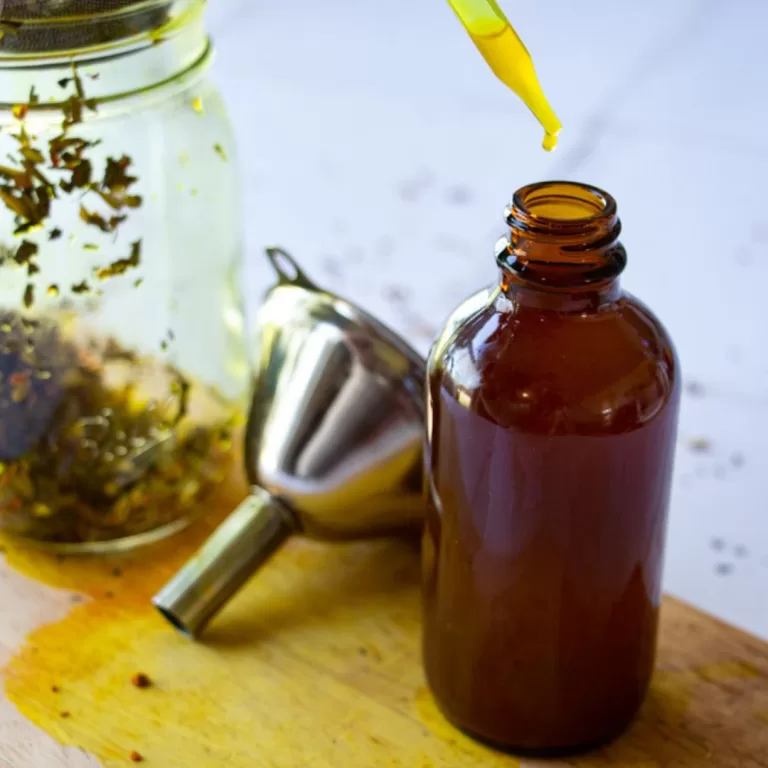
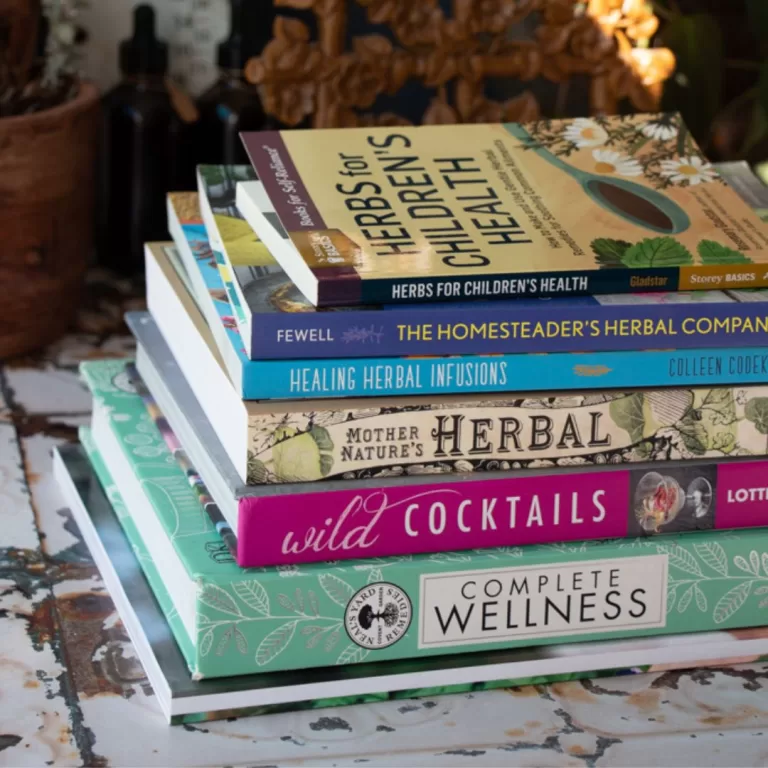
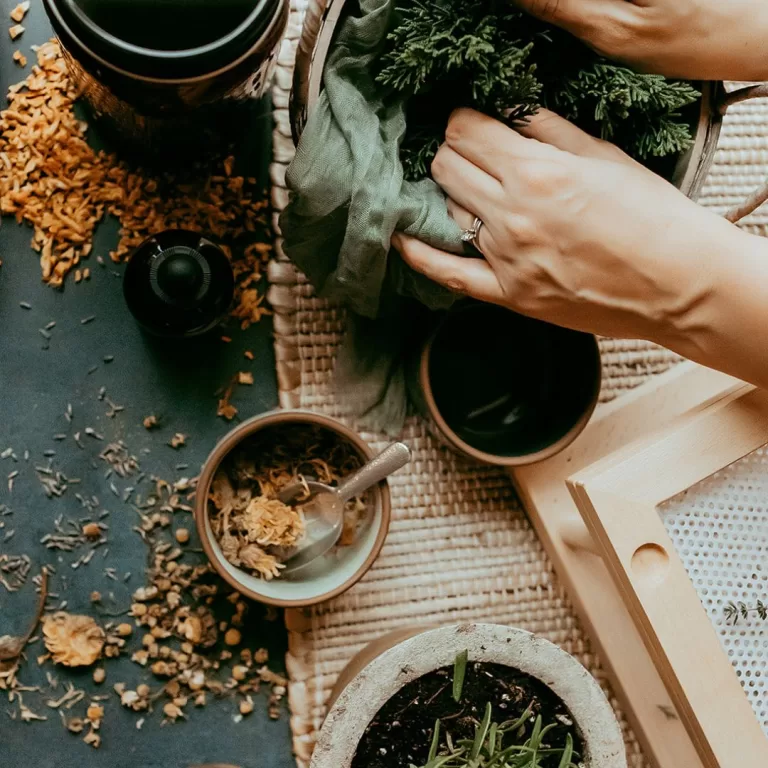
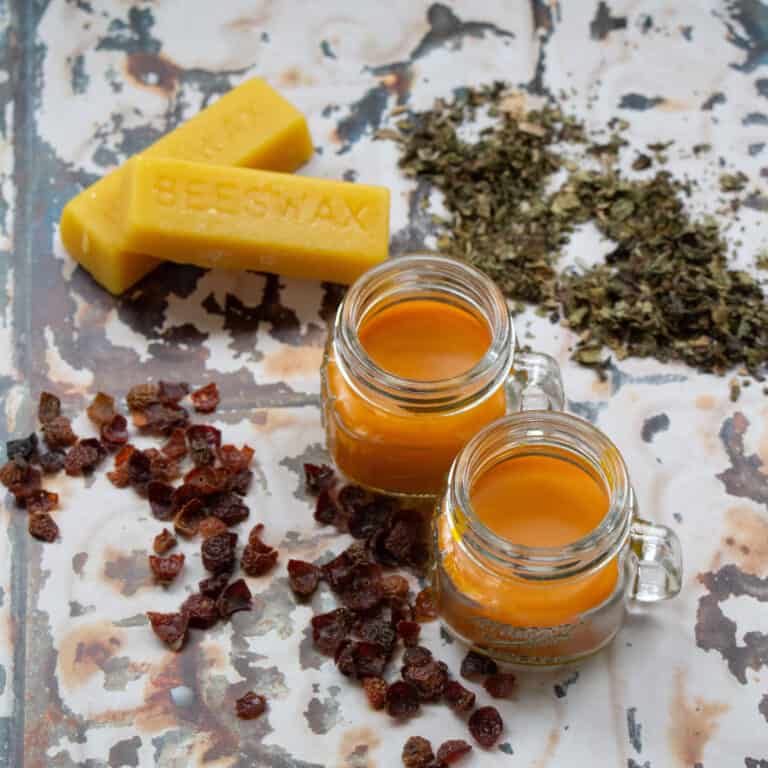
One Comment